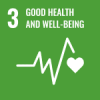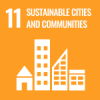Professor of Statistics UGM, Prof. Dr. rer.nat. Dedi Rosadi, S.Si., MSc., again conveyed the latest trend predictions for confirmed cases of Covid-19, both for predictions of short-term and long-term trends.
“The end of the pandemic depends on the government’s efforts to control the spread of the Covid-19 disease,” he said on Thursday (24/9).
According to him, based on the latest data tracking and using various data-driven modeling approaches (based on data movement), there was a significant increase in the projected value of positive cases at the end of the pandemic which was quite significant compared to the last release at the end of July 2020. The most optimistic prediction is obtained by using the SIR-Regression-time-series hybrid compartment model. It is estimated that the pandemic will end in mid-February 2021, with a total positive case of at least 322,000 sufferers.
Meanwhile, it was separately obtained using the Probabilistic Data-Driven Model (PDDM) of Covid-19 Indonesia compiled by Dedi Rosadi with Alumni of Faculty of Mathematics and Natural Sciences UGM, Drs. Joko Kristadi, MSi. and Dr. Fidelis Diponegoro, S.Si., MM., it was found that the pandemic will peak in mid-November to early December and end at the end of May 2021 with an estimated total positive case of around 700 thousand sufferers.
Meanwhile, with the other team, Dedi Rosadi conducted a study using the Richard curve model approach and the logistic growth curve, which showed the projected end of the pandemic to be between April 2021 to early 2022 with a total prediction range of patients that was similar to the results of the SIR-Regression and PDDM models.
Furthermore, from monitoring the daily incidence curve of patients, the increase in the number of daily patients has not reached its peak until now. Meanwhile, the current transmission rate (Rt) is still above 1, which is 1.07 on September 23, 2020. However, with the SIR-Regression-time-series model, it can be concluded that there was a slight increase in the infection rate of the spread of the disease, which was accompanied by a fairly high increase in the rate of patient recovery.
Based on this prediction, Dedi Rosadi conveyed several important notes that deserve mutual attention at this time. First, it is necessary to optimally control the spread of Covid-19 by intensifying 3T, namely tracing, testing, and treatment in Indonesia’s main epicenters, including DKI Jakarta, West Java, East Java, Central Java, Banten, and South Sulawesi. Likewise, it is also necessary to control the spread more optimally by intensifying the 3T movement in other provinces.
“Nationally, in the near term, it is also important to carefully monitor the possibility of the emergence of PILKADA clusters that arise because population mobility supports the process of this activity both before the D day and on the D day of the PILKADA activities,” he explained.
Furthermore, it is necessary to increase awareness of local transmission in several provinces or districts, which are the epicenters of the spread of Covid-19. It is essential to consider that the Rt calculation (reproduction rate/transmission rate) of Indonesia’s Covid-19 in recent days is still around 1.07.
Dedi said that the reduction in the transmission rate could be carried out optimally with various efforts. Mainly by disciplining the public in obeying health protocols, especially the use of masks and maintaining distance, more careful regulation of population mobility, and mass vaccination. On the other hand, the discovery of drug technology will increase the rate of recovery so that together these efforts will end the Covid-19 pandemic more quickly.



